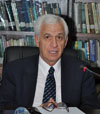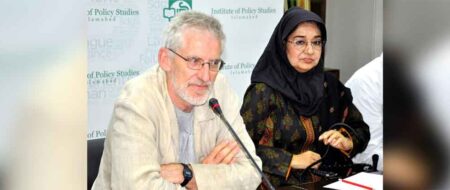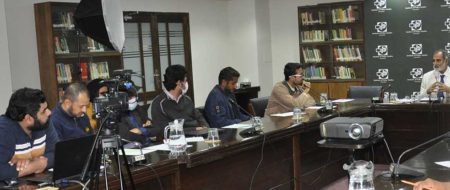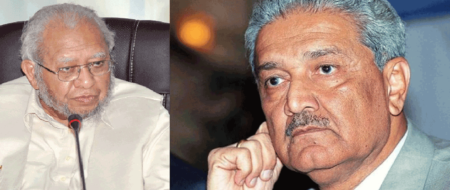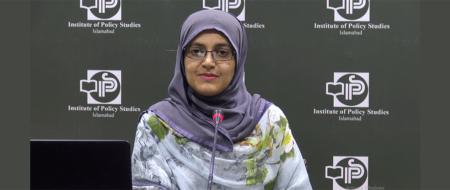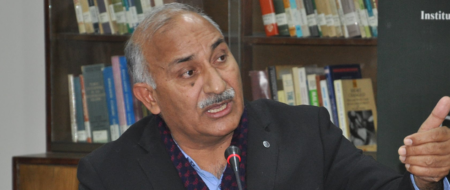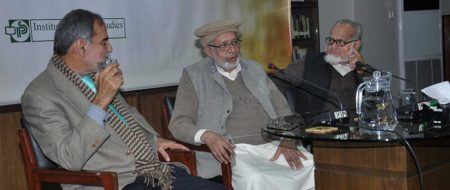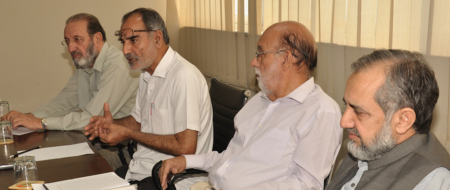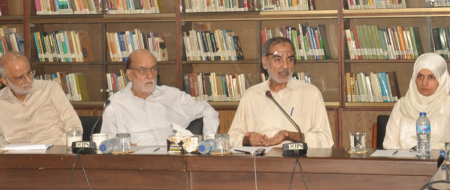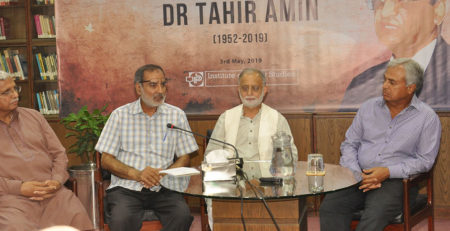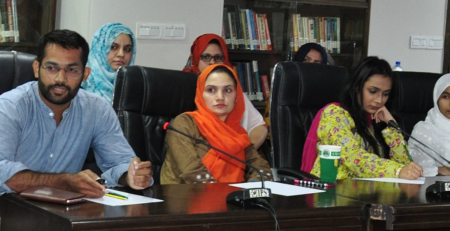India set to play major role in Indian Ocean: new Obama policy
ISLAMABAD: With a cabinet reshuffle and a strengthened mandate, the US President Obama will definitely pursue a bolder policy during his second term because he does not have a third term to look for and thus he will be no longer under political pressures.
ISLAMABAD: With a cabinet reshuffle and a strengthened mandate, the US President Obama will definitely pursue a bolder policy during his second term because he does not have a third term to look for and thus he will be no longer under political pressures. The US is expected to focus on its strategic interests in the Indian Ocean and hence it will give all-out support to India to play a major role in the region. Former US Ambassador James Larocco shared these views in an interactive session at the Institute of Policy Studies (IPS).
James Larocco, Director of the Near East and South Asia Center (NESA) for Strategic Studies at the National Defense University, Washington DC, speaking on ‘Key US Strategic Interests’, said that President Obama would no longer be subject to political pressure as he will not be aspiring for another term in next elections. “With his new team in President’s office, it is going to be a different US administration.”
During the second term, President Obama will be focusing on “his legacy”, he observed.

Larocco noted that the issues that would occupy high priority in US priorities in near future will be energy security, requiring more focus on gulf; freedom of navigation in marine movement; non-proliferation, requiring tougher stance over North Korea and Iran; and countering violent extremism particularly in Afghanistan, Pakistan and North Africa.
He said that Indian Ocean being the world’s energy corridor has gained significant importance and will receive even more attention of the world during the days to come.
“US will like India to play a greater role in the region as well as in the Indian Ocean,” he said. He said India should also have played its due role in rescue operation during tsunami in the Indian Ocean.
Indian Ocean, all the way from Red Sea to South China Sea, will be focus for US, he emphasized, suggesting that the South Asian countries should adopt a regional approach and cement their mutual relations particularly in trade and economics.
Commenting on the US policy of neglecting Pakistan every time the US goals had been achieved in the region, former senior US diplomat acknowledged that his country did not have a good record in this connection. “We walked away every time but our strategic interests continue to bring us back to Pakistan,” he said.
But, he said that the US wanted a lasting relationship based on mutual respect and cooperation with Pakistan, since his country is “not seeking allies anymore but is planning to build partnerships.”
He added that the US considers Pakistan’s role in Afghan peace process as significant and recognizes the cost that Pakistan had paid in post-9/11 scenario. He stressed on further enhancement of mutual trust between Pakistan and America.

Responding to a question about drone strikes and the damage they are causing to Pakistan, he argued that US Special Forces, the drones and the cyber space actions are the “three key tactics” of its military strategy and marked a salient and permanent feature in all its operations. He insisted that international law had yet to come up with a framework with respect to the use of drones and cyber space but the efforts to reach a convention or international treaty in this regard seem to be lacking.
Concluding the session, former secretary-general of the foreign ministry and member, IPS National Academic Council, Akram Zaki said that the policy of drone strikes that was causing deaths and injuries to innocent people obviously showed that President Obama and the US administration cared only for the perceived threat to the lives of Americans and least cared for the lives of Pakistanis. Zaki stressed that “Barak Obama has the opportunity to leave a noble legacy by applying the principles of equality and human dignity throughout the world without discrimination.”
Referring to the presumed vacuum with respect to use of drones and cybercrimes, Zaki reminded that right to life, respect to sovereignty of States, non-intervention and rule of law make the cornerstone of international law and they were being ignored.
“US cannot evade the responsibility by alleging absence of laws where it has repeatedly violated a host of other principles of international law in Guantanamo Bay, Abu Ghuraib, Bagram, and elsewhere in the world, he stressed.
 |
 |
The former senior diplomat termed the era of Bush as an era of “international illegality”. Barak Obama too had opted to tread the same path and “this is the time for him to make a difference,” Zaki said.
On regional integration and the role of India in the Indian Ocean, he reminded that Indian role in the region had always been detrimental to the interests of neighboring countries and it did not qualify as a major player in the region.
He also reminded that in his first presidential campaign, Obama had termed Kashmir as the key to peace in South Asia and had promised a special envoy on Kashmir but once he was in office he preferred to exclude Kashmir from his agenda.
“US insistence to give India a bigger role in the region is clearly unjustified,” he emphasized.
Zaki said that Pakistan and US needed to frame their relations afresh on the basis of mutual respect, fairplay and “more importantly, with less expectations from each other”.


